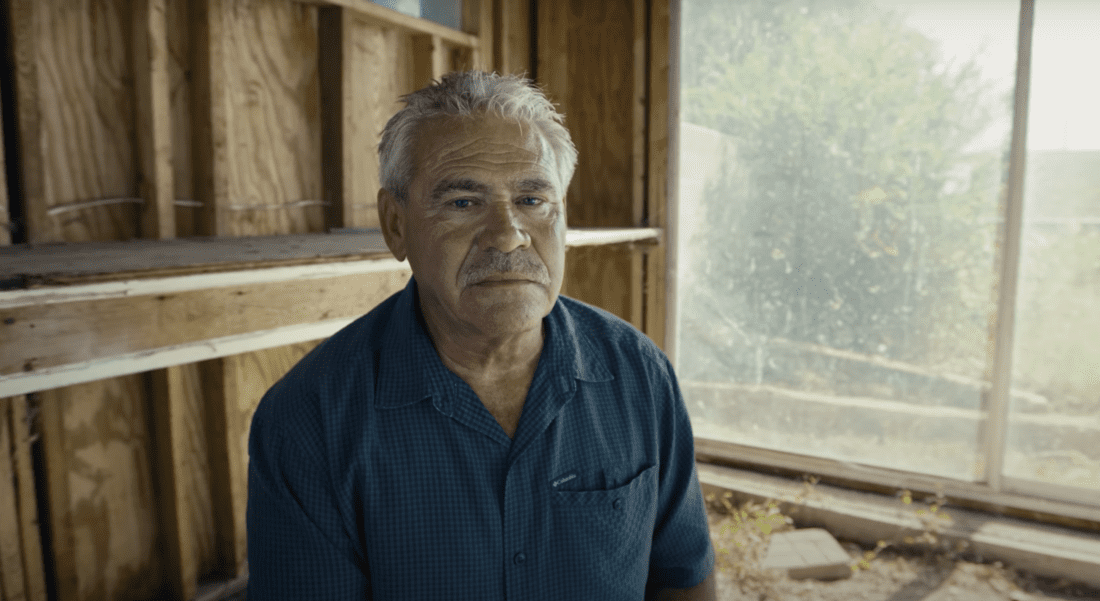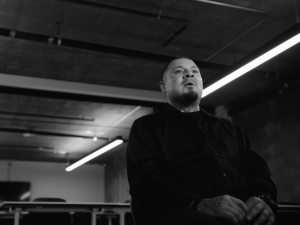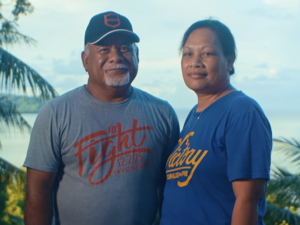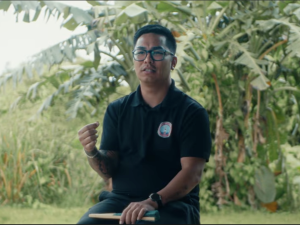For 30 years, Clay slid further and further into his addiction. Nothing could stop him—not his father’s suicide, not his girlfriend’s murder, not his numerous failed attempts at sobriety.
But on his sixth trip to The Salvation Army’s addiction recovery program in Albuquerque, New Mexico, he suddenly heard a voice cut through the silence: “Are you ready, Clay?”
Watch his story to see how he answered.
Below is a transcript of the video edited for readability.
Clay Dean: Cocaine is one of those strange drugs. It doesn’t like, get you all inebriated and stuff. No, it kind of like, makes you better, almost. You hear better, see better, smell better.
So when cocaine showed up, it was socially acceptable. If you’re in business and you happen to have a little coke when you go to make a presentation, you kind of, maybe, even put it out there better. And that’s kind of how it snuck up on me. It was like, fourteen years before I even tried to get clean.
I think I literally worked at 20 or 25 different dealerships. People will put up with a lot of crap, if you make them money. While I consistently burned every bridge, almost everybody gave me a second chance. You make somebody $20,000, they’ll probably keep you around for a little while. If I wasn’t doing dope, I was getting money so that I could buy dope, so that I could do dope.
My dad really never got to see me in my right mind. I was still a raging drug addict when he committed suicide, and I took advantage of it as a way to get more money for my drug use, if you can believe that. That’s how horrible of an addict I was.
I don’t know how many jobs wasted, how much money stolen from my mom and brothers and sisters. Once I was in one of these, like, weekly stay places, and we were doing drugs. And I don’t know exactly how my mom got ahold of this person, but he brought her to the place where I was at.
Gloria Dean (Clay’s Mom): I had to pick up some riffraff, so he could tell me where to go. And I had my gun right on my seat between the two of us, and I told him I had it and he better behave. So he took me where he said Clay was, and he went up and told Clay I was there.
Clay Dean: I said, “I ain’t going anywhere.” The dope dealers didn’t want me to go anywhere either, because if I walked, they weren’t getting any of my money.
Gloria Dean (Clay’s Mom): Clay wasn’t going to come down until he told him I had a gun.
Clay Dean: He said, “She watched me come up here, and she does have a gun.” Then they made me leave.
Gloria Dean (Clay’s Mom): Well, the adrenaline flowed or I wouldn’t have gotten through it. I figured my kid’s in trouble, I gotta go.
Clay Dean: The last person that I had a real relationship with, she didn’t make it out. Every addict has been there. We were really stressing out for dope. She told me, she said, “Look, go home and wait for me.” She hit the street and it wasn’t long before somebody picked her up.
She got in that truck, and that was the last time I ever saw her. She was missing for four years before her remains were discovered in a shallow grave on the West Mesa with eleven other women.
News anchorman: Forensic scientists have now identified two more of the eleven women found buried on the Albuquerque West Mesa.
Clay Dean: So even that, I still couldn’t stop. I never pictured a clean life while I was using, didn’t never picture a clean life, didn’t believe that I could have one. I believed that the only thing I was good for was doing dope. As addicts, we just wear people out. Anybody that shows us any affection, or anybody that cares about us, those are the ones that get torn down and used and hurt the worst.
I came to this exact Salvation Army no less than five times, probably six times. Instead of saying, “Oh, here he comes again,” they were still there, and they still said, “Come in.” I mean, I think the first time I was in the program was in 1994 and I didn’t get clean until 2009.
That last time, I went over to the bunk that I was assigned and I just got on my knees and I said, you know, “God, I’m not going to be able to do this.” “I’ve been using drugs for 30 years, I can’t quit.” “If this is going to happen, you’re going to have to do it.”
And I heard a voice just as clear as us talking here right now. It said, “Are you ready, Clay?” Just that clear, “Are you ready, Clay?” And I can tell you that every day since then, I have had enough power to do what was in front of me that day without going out and using or drinking.
Major Raewyn Aspetia, Albuquerque and counties coordinator: Every day since that day. We get to help them be in an environment where they get to start again, clean and sober, living good lives. It’s really exciting. I love to see God do that work, and be a part of that work. That’s exactly what’s happened to Clay, and it’s just fantastic to see.
Clay Dean: It’s a funny thing, if you’re not spending all your money on women and drugs, you can save some money. You really can. And so, after, you know, ten years of no drugs and women and craziness, I was able to put a sizable down payment on a house and to me, it’s my mom’s house, okay, because I had basically taken all her houses for my drug use. She has it decorated just the way she wants. And she can count on me again, you know?
Gloria Dean (Clay’s Mom): If I was going to die tomorrow, I’d be okay with that. Because what more could I ask for? It’s what I prayed for many, many times, many nights, all night, that’s what I prayed for. Now it’s prayers of thanksgiving.
Clay Dean: Thirty years, I was using. Thirty years. But God saved me.
Clay now serves on the advisory board for The Salvation Army in Albuquerque. There he draws on his experiences to help advise the Army on how to best continue to serve the community.
Do Good:
- Find more videos like this in our video feed.
- See how The Salvation Army fights addiction.
- Did you know The Salvation Army served more than 23 million Americans last year fighting hunger, homelessness, substance abuse and more—all in a fight for good? Where can you help? Take our quiz to find your cause and learn how you can join in today.












